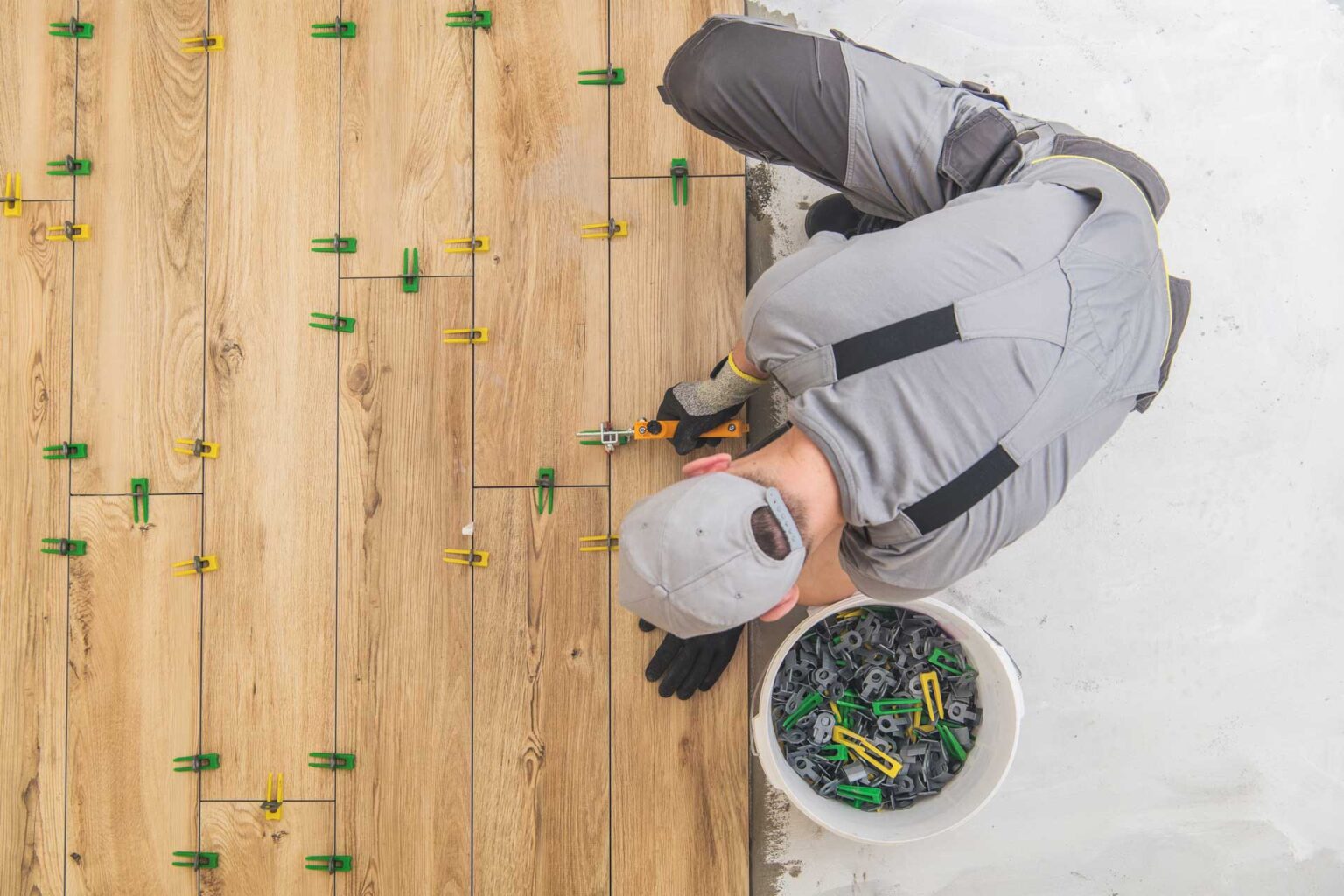Flooring plays a foundational role in both the function and aesthetic of a home. It sets the tone for interior design, withstands daily wear and tear, and significantly impacts property value. Whether you’re upgrading old carpets, replacing damaged hardwood, or installing new luxury vinyl planks, choosing the right flooring company is one of the most crucial decisions in the process.
This guide will walk you through everything you need to know before hiring a flooring company—from evaluating your options to understanding materials, pricing, and long-term care.
Why the Right Flooring Matters
Flooring isn’t just a surface underfoot—it’s a key structural and design element that influences comfort, acoustics, insulation, and lifestyle compatibility. A poor installation can result in squeaks, gaps, buckling, and even safety hazards. That’s why hiring a reliable flooring company is essential—not just for aesthetic results, but for long-term durability and peace of mind.
Step 1: Identify Your Flooring Goals
Before contacting a flooring company, you should first clarify your goals. Start by asking yourself the following:
- What is the purpose of the space? High-traffic areas need durable materials.
- Do you have pets or children? This may impact your choice of flooring.
- What’s your design style? Wood, tile, and carpet all create different aesthetics.
- Is the area exposed to moisture? Bathrooms and basements require water-resistant materials.
- What is your budget? This affects both the material and installation options.
Having a clear vision will help guide your conversations with flooring professionals and ensure you get accurate recommendations and quotes.
Step 2: Understand Your Flooring Options
A good flooring company will help you choose the best material for your needs, but it’s helpful to familiarize yourself with your options beforehand.
Hardwood
Classic and timeless, hardwood flooring adds warmth and value to any home. It’s available in a variety of species, finishes, and plank sizes. Solid hardwood can be refinished multiple times, but it’s not ideal for humid environments.
Engineered Wood
This is a more moisture-resistant alternative to solid hardwood, made with layers of plywood and a hardwood veneer. It looks nearly identical to solid wood but is generally easier to install and more stable.
Vinyl (Luxury Vinyl Plank or Tile)
LVP and LVT have gained massive popularity for their water resistance, durability, and affordability. They’re ideal for kitchens, bathrooms, and basements and come in a variety of realistic wood and stone designs.
Laminate
A budget-friendly alternative to wood, laminate is durable and easy to maintain but susceptible to water damage if not properly sealed.
Tile
Tile—whether ceramic or porcelain—is a top choice for wet areas. It’s stylish, durable, and available in endless designs. However, it can be cold underfoot and hard on joints.
Carpet
Ideal for bedrooms and cozy living spaces, carpet adds warmth and sound insulation. It comes in many fibers and styles, but may not be ideal for allergy sufferers or high-traffic areas.
Step 3: Research and Shortlist Potential Companies
When selecting a flooring company, it’s essential to do your homework. A beautifully designed website or a slick brochure doesn’t always equate to quality service.
Here’s how to properly vet companies:
Check Reviews and Ratings
Read online reviews on Google, Yelp, and trusted trade platforms. Look for patterns in feedback—positive or negative. A company with dozens of positive reviews is typically more reliable than one with just a few.
Ask for Recommendations
Talk to friends, neighbors, or coworkers who have recently had flooring work done. Personal referrals can provide honest insights.
Examine Their Portfolio
A reputable flooring company will have a portfolio of completed projects. This gives you a visual idea of their style, precision, and range of work.
Step 4: Questions to Ask Before Hiring
Once you’ve narrowed down your list of potential companies, it’s time to interview them. Don’t hesitate to ask detailed questions—after all, it’s your home and your investment.
Here are key questions to consider:
- Are you licensed and insured? Always confirm this to protect yourself against accidents or subpar workmanship.
- What types of flooring do you specialize in? Not every company excels in all materials.
- Do you offer free consultations or estimates? Most reputable businesses do.
- What’s included in the quote? Ask if it covers removal of old flooring, prep work, installation, and cleanup.
- Do you provide a warranty? Many companies offer installation warranties in addition to manufacturer warranties on materials.
- Can you provide references? Speaking to past clients can reveal a lot about the customer experience.
- How long will the project take? Get a clear timeline upfront to avoid surprises.
Step 5: Compare Estimates Carefully
Price should not be the only deciding factor. A cheap quote might reflect inferior materials or rushed workmanship. That said, comparing multiple estimates can help you understand what’s reasonable for your project scope.
Make sure each quote includes:
- A breakdown of material and labor costs
- Details about subfloor prep, underlayment, or additional materials
- Removal and disposal fees for old flooring
- Timelines for project milestones
- Warranty terms
Choose the flooring company that offers the best balance of price, professionalism, and reputation.
Step 6: Prepare for Installation
Once you’ve chosen a company and set a date, it’s time to prepare your home. The flooring company will usually provide a checklist, but here are some general tips:
- Clear the area of furniture and personal items
- Ensure pets and children are safely out of the work zone
- Communicate any concerns about noise or access to utilities
- Confirm delivery and staging areas for materials
Proper preparation ensures the project runs smoothly and without avoidable delays.
Step 7: During and After Installation
During installation, monitor progress and maintain open communication with the team. A professional flooring company will work efficiently, respect your home, and keep disruptions minimal.
After installation:
- Inspect the work carefully
- Ask for care and maintenance tips
- Request a copy of all warranty information
- Confirm disposal of old materials and a clean finish
Take pictures of the final product for your records—especially if you plan to resell your home.
Long-Term Maintenance Tips
The longevity of your new floors depends on how well you care for them. Here are general maintenance tips by flooring type:
- Hardwood: Sweep regularly, avoid excess water, and use furniture pads.
- Vinyl/Laminate: Mop with non-abrasive cleaners, avoid dragging heavy objects.
- Tile: Seal grout annually and clean with pH-neutral products.
- Carpet: Vacuum weekly and have it professionally cleaned annually.
Ask the flooring company for brand-specific care recommendations to avoid voiding warranties.
Warning Signs of a Poor Flooring Company
Be cautious if you notice any of the following:
- Vague or verbal-only quotes
- No business license or insurance documentation
- Reluctance to provide references
- Pressure to sign a contract on the spot
- Limited communication or hard-to-reach team members
A trustworthy flooring company in Cary will never hesitate to share credentials, walk you through their process, or answer your questions thoroughly.
Conclusion
A flooring project is a major investment—both financially and aesthetically. Whether you’re renovating one room or upgrading your entire home, choosing the right flooring company is the key to success.
Take your time to research, ask the right questions, and compare your options carefully. A professional, experienced flooring company will not only deliver excellent craftsmanship but also provide peace of mind that your floors will last for years to come.

















